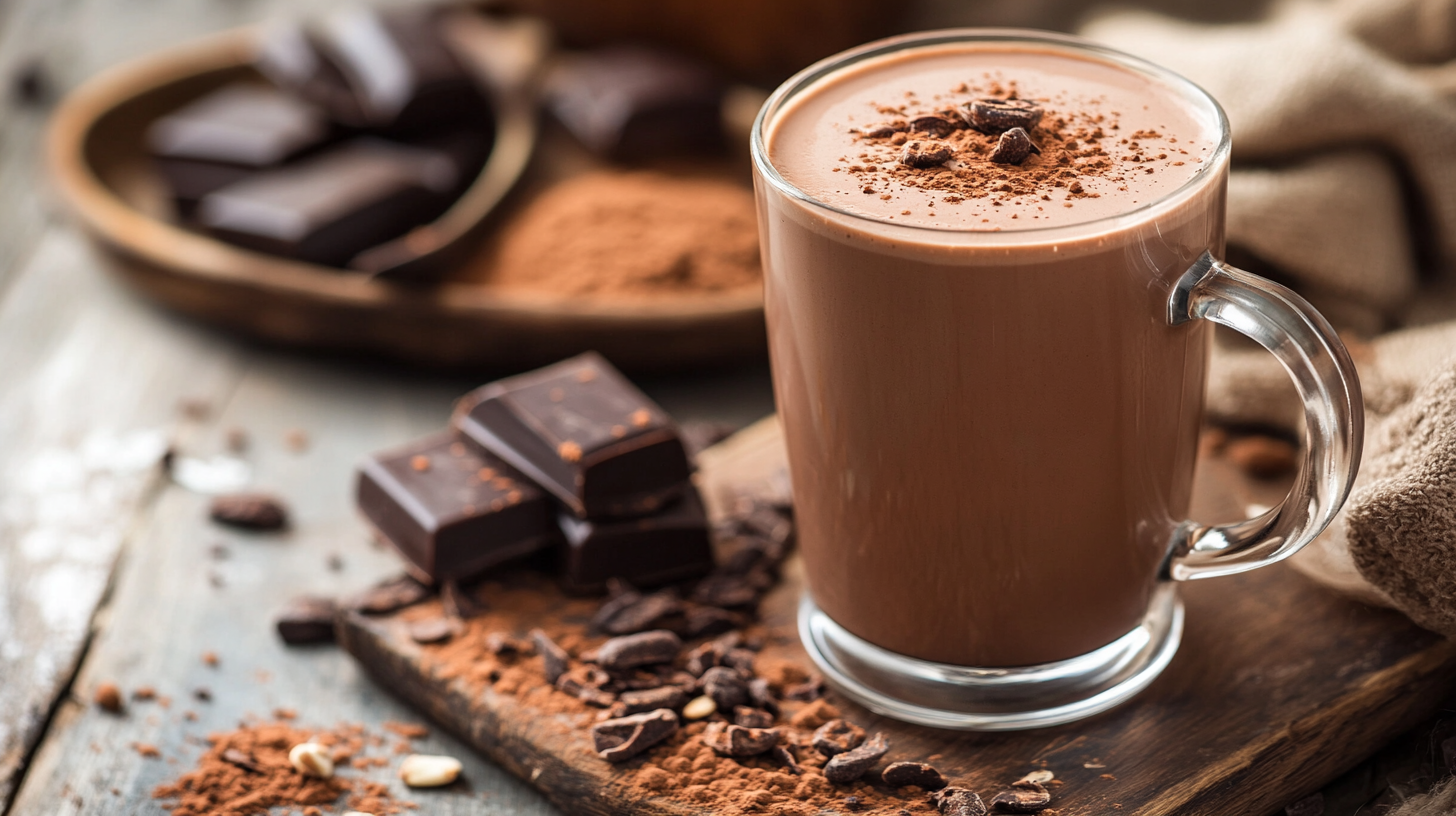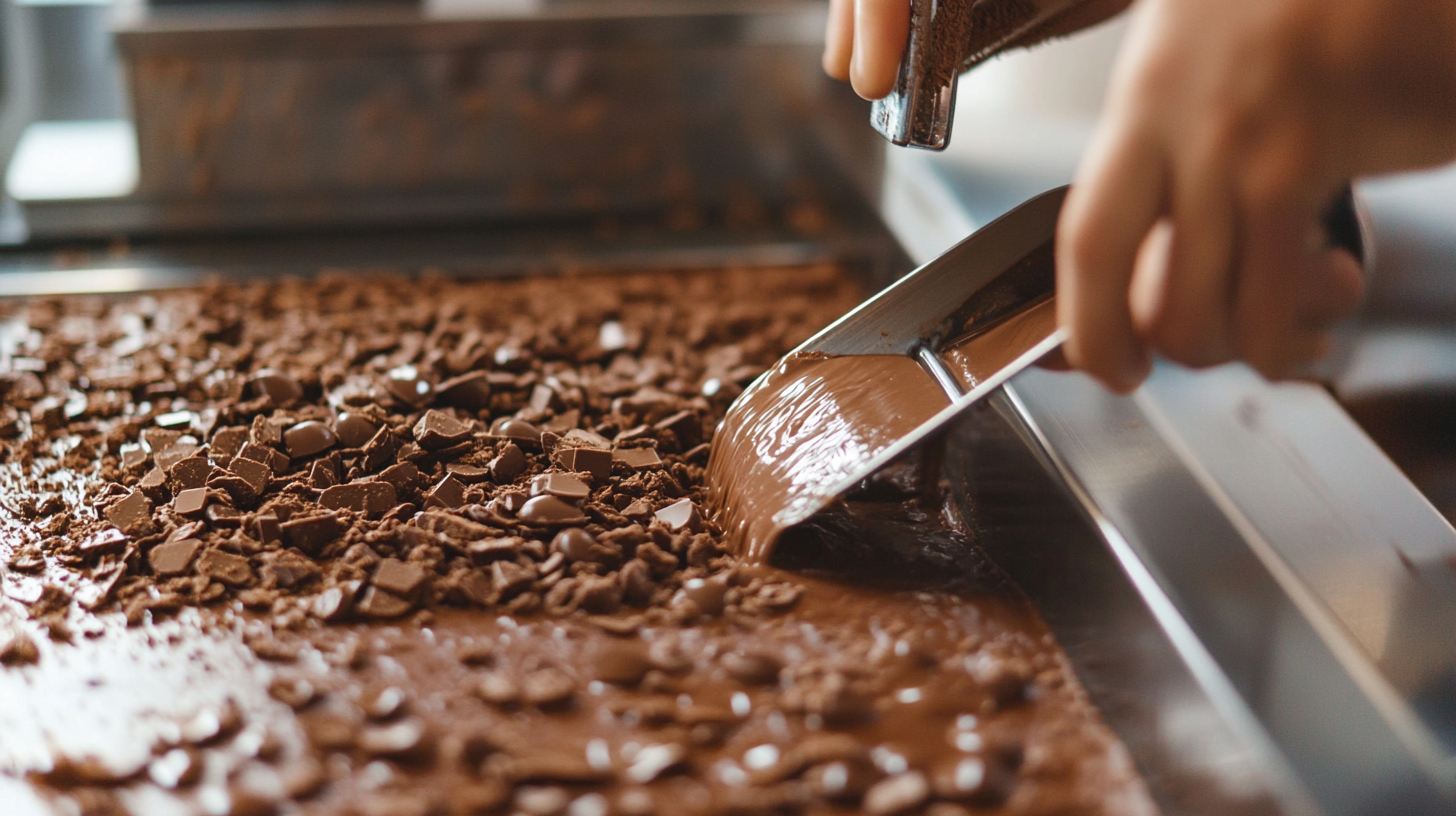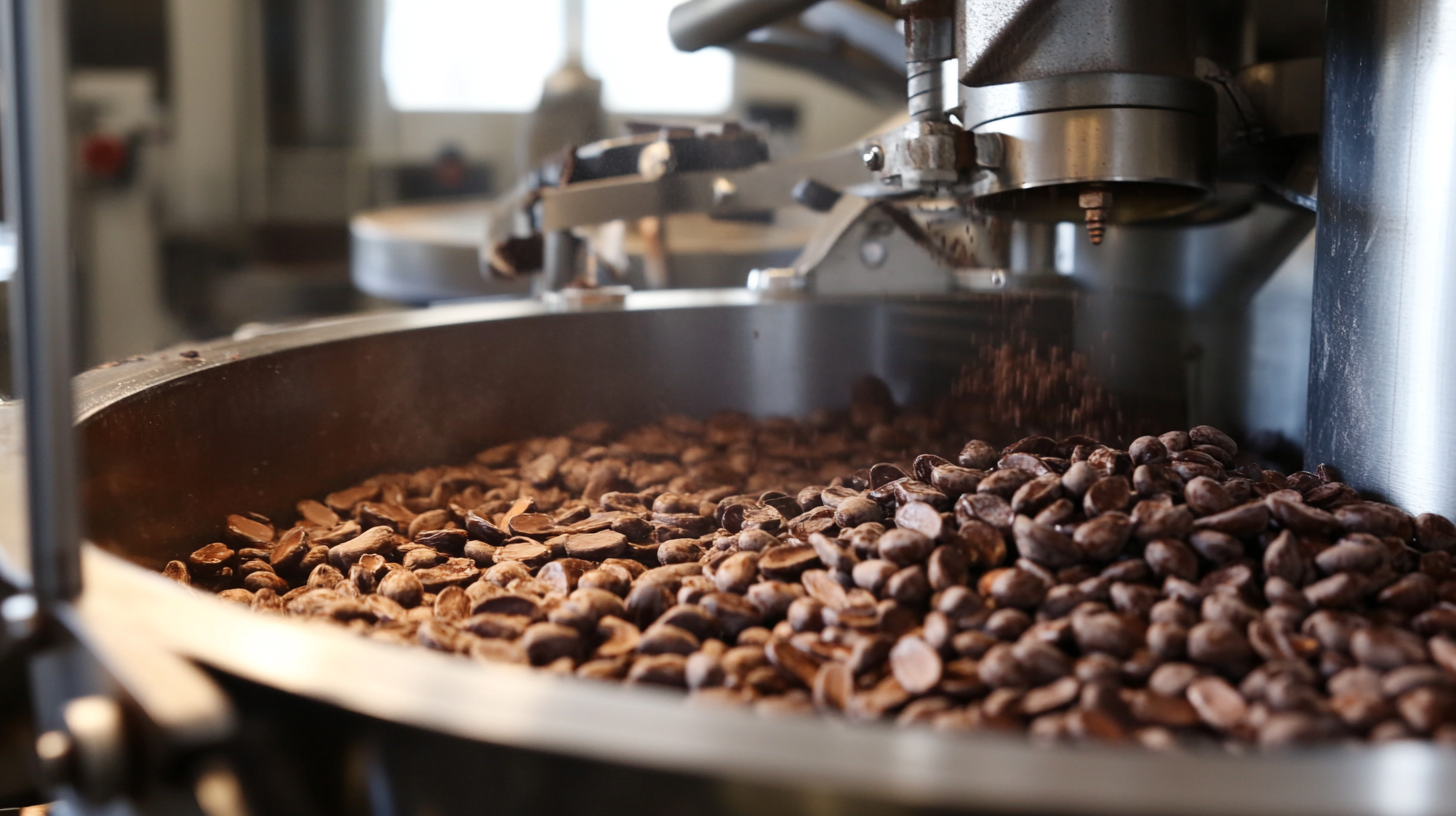The Cacao Machines market is experiencing a transformative phase, driven by innovations and evolving customer preferences. As the demand for high-quality chocolate continues to surge, manufacturers are investing heavily in advanced cacao processing technologies. This blog will explore the significant trends shaping the cacao machines industry as we approach 2025, highlighting the latest developments that promise to revolutionize how cacao is processed and transformed into delightful chocolate products.
In this rapidly advancing sector, staying ahead of technological and market trends is essential for businesses aiming to capture the growing consumer interest in sustainable and artisanal chocolates. By examining emerging innovations in cacao machines, we can gain valuable insights into the future of chocolate production, including automation, energy efficiency, and sustainable practices. Join us as we delve into these exciting developments and their implications for the cacao machines market in the coming years.

In the rapidly evolving landscape of the cacao machines market, emerging technologies are playing a pivotal role in shaping future innovations by 2025. As the global demand for chocolate and cacao products continues to surge, manufacturers are investing heavily in cutting-edge solutions that enhance efficiency, sustainability, and product quality. One significant trend is the integration of automation and artificial intelligence into cacao processing equipment. These advancements not only streamline production but also optimize the consistency of the final product, ensuring that quality standards are met every time.
Another notable shift in the market is the adoption of sustainable practices powered by technology. Manufacturers are increasingly turning to energy-efficient machines that reduce waste and lower the carbon footprint of cacao processing. Innovations such as eco-friendly roasting systems and biodegradable packaging solutions are gaining traction, allowing businesses to meet consumer demand for sustainability without compromising on quality. Additionally, smart technology, including IoT (Internet of Things) sensors, is being utilized to monitor equipment performance in real-time, leading to predictive maintenance and reduced downtime.
Moreover, advancements in fermentation and drying processes are revolutionizing how cacao beans are treated before they reach chocolate production. Techniques that harness controlled environments and precise temperature settings are enabling producers to enhance the flavor profiles of cacao, providing a unique competitive edge. As these technologies continue to develop, they promise to transform the cacao machines market, making it more innovative and responsive to the evolving needs of consumers and producers alike. The future of cacao machinery lies in this intersection of technology and sustainability, setting the stage for a thriving industry by 2025.

The cacao machines market is undergoing significant transformation as sustainability practices increasingly influence innovations in cacao processing. A 2021 report from Research and Markets indicated that the global cacao market was valued at approximately $9.95 billion, with projections showing it reaching $15.9 billion by 2025. This growth is accompanied by a growing awareness and adoption of sustainable practices within the industry. The focus on sustainable sourcing is propelling cacao machine manufacturers to redesign their equipment to minimize energy consumption and waste production.
One of the key innovations driven by sustainability concerns is the introduction of eco-friendly cacao processing machines that utilize energy-efficient technologies. For instance, according to a recent study by IBISWorld, machinery equipped with advanced sensors and automation systems not only enhances productivity but also reduces the carbon footprint associated with cacao processing. As a result, more manufacturers are investing in R&D to create machines that align with the sustainable supply chain demands from both consumers and regulatory bodies.
Moreover, the integration of sustainable practices, such as fair trade and organic certification, is reshaping the cacao supply chain. The Fair Trade System ensures that producers receive an equitable share of profits, which subsequently affects the demand for machines capable of processing high-quality, certified cacao. As highlighted in a report by the International Cocoa Organization, there has been a 20% increase in the demand for sustainably produced cacao, prompting manufacturers to develop specialized machines that cater to these requirements. This trend signals a robust shift towards innovations that not only enhance efficiency but also uphold ethical and environmental standards throughout the cacao processing industry.
As we look towards the cacao machines market in 2025, consumer preferences in cacao production are increasingly influencing the dynamics of the industry. Recent trends indicate that consumers are becoming more discerning about the origins and processing of cacao, emphasizing the demand for globally sourced high-quality beans. This shift is fostering innovation in machine technologies that prioritize sustainability and efficiency in production processes. Cacao manufacturers are now focusing on equipment that not only enhances flavor extraction but also preserves the environmental integrity of cacao cultivation.
Moreover, the growing interest in artisanal and premium chocolates is encouraging producers to adopt machines that facilitate more intricate manufacturing processes. These advancements cater to the burgeoning market for unique flavors and high-quality products that resonate with health-conscious consumers. As a result, the cacao machines market is expected to evolve to meet these emerging demands, integrating innovative features that enable customization and greater control over production parameters.
As brands navigate this competitive landscape, staying ahead means not only understanding consumer preferences but also investing in technology that aligns with sustainable practices and food safety standards. This ongoing digital transformation in cacao production is essential for brands looking to thrive and meet the expectations of a more informed consumer base.
The cacao machinery market is experiencing dynamic changes as key players push the boundaries with innovative technologies. As the demand for high-quality cacao products rises, manufacturers are increasingly focusing on automation and efficiency in their machinery. Enhancements in processing capabilities enable producers to extract rich flavors and maintain the integrity of the cacao beans. The integration of smart technologies in cacao machines not only streamlines production but also allows for better monitoring and control of the manufacturing process.
Key players in the industry are investing in research and development to stay ahead of the competition. Innovations such as energy-efficient roasting machines and precision grinding equipment are becoming pivotal in meeting the evolving needs of chocolatiers and confectioners. Additionally, the trend towards sustainability is prompting manufacturers to develop machines that minimize waste and reduce energy consumption, aligning their operations with the growing emphasis on eco-friendly practices.
As we look towards 2025, it is clear that the competitive landscape of the cacao machinery market will be shaped by those who successfully harness these innovations. Companies that can blend traditional craftsmanship with modern technology will likely capture a larger share of the market, catering to the sophisticated tastes of consumers who demand quality and sustainability in their cacao products. The future of cacao machinery appears promising, with advancements opening up new avenues for creativity and efficiency within the industry.

The cacao machines market is on the brink of significant transformation as automation and smart technology take center stage in cacao manufacturing. As industries increasingly embrace the innovative potential of artificial intelligence, the cacao sector stands to benefit from enhanced efficiency and precision in production processes. These advancements promise not only to streamline operations but also to ensure a higher quality of cacao products, adapting to consumer demand in real-time.
Smart manufacturing technologies, characterized by interconnected devices and data-driven decision-making, are set to revolutionize how cacao is processed and produced. By leveraging IoT (Internet of Things) and AI, manufacturers can monitor equipment performance, predict maintenance needs, and optimize logistics, all of which contribute to a more sustainable and efficient supply chain. Integrating these technologies can minimize waste, reduce energy consumption, and ultimately lead to a more environmentally friendly cacao production method.
Moreover, the future of cacao manufacturing is likely to be shaped by innovations in machine design and automation processes. Automated systems can handle repetitive tasks with precision, freeing up human operators to focus on complex problem-solving and creative roles. This shift not only enhances productivity but also fosters a more adaptable manufacturing environment that can respond swiftly to changing market conditions and consumer preferences. As the cacao machines market evolves, embracing these future technologies will be crucial for staying competitive and meeting the rising expectations of consumers worldwide.
For more information, fill out our contact form